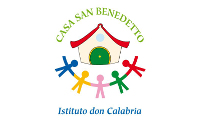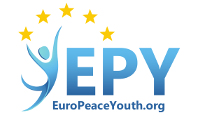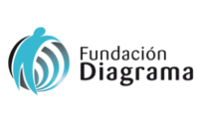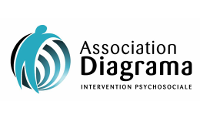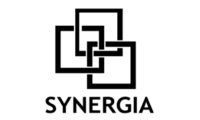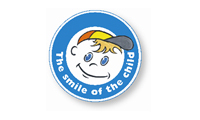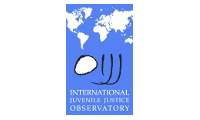
Microsite Net for U
Partners of the project
Istituto Don Calabria (IT) Coordinator of the project
The mission of Istituto Don Calabria is to promote the wellness of people, satisfying their overall needs, by enhancing their attitudes and abilities, so that they might be included into the social and working environment in the best possible way. With its headquarters in Verona (Veneto region in the North of Italy), it also coordinates other structures in many other regions.
All activities are inspired by the principles and values inherited by the founder of the Congregation, San Giovanni Calabria; the principal aims are the fulfillment and the social participation of the persons, especially the disadvantaged ones, and the prevention of social exclusion and marginalization.
Our target groups are:
- young people with social handicaps;
- people with acquired disabilities;
- disadvantaged young people
- unemployed adults;
- immigrants;
- ex-prisoners;
- juvenile offenders;
- former drug addicts;
- unaccompanied foreign minors.
WORK WITH UNACCOMPANIED FOREIGN MINORS
In Verona, Ferrara (Emilia Romagna region), Palermo and Termini Imerese (Sicily region) (areas involved in the NET FOR U project), minors who reach our country are hosted in educational communities and facilities: we provide for their accommodation needs and their genera wellbeing. The operators help them to live in a new country as far as: health, education and job, autonomy and leisure time. In our structure also courses and activities about specific topics are organize such as: sexuality, Italian or English language, health, legality, self help groups, sport activities, tours and outings, and so on.
All the educators work to create a social net with stakeholder and with companies to organize better opportunities for the adulthood transition.
Euro Peace Youth (UK)
Euro Peace Youth is made up of a group of individuals who have come together to provide integrated services to young people, their families and communities that are based on shared values and preferred outcomes. The organisation’s aim is:
- To provide integrated (therapeutic, lifelong learning and progression/employability) services to the most vulnerable youth and young adults in a variety of settings across Europe.
- To prepare and train staff to work in and develop these services
- To build the capacity of local professional & community networks to sustain the development of these services.
- To build an epistemic culture within & between organisations
- To actively research & develop new, innovative & effective ways of delivering services to this target group
EPY and Unaccompanied Foreign Minors
EPY has supported, and will continue to support, a number of groups with participants who have arrived in the UK as unaccompanied minors. Members of the group vary in nationality but are predominantly from Asia and Africa and are aged 14-16. The group is also predominantly made up of boys. They all speak and understand very little English but are very determined to learn and engage. We help them to access education, healthcare, legal support and arrange workshops and group activities to support with navigating the ups and downs of adolescent life in a foreign place; this in turn helps to build trust, confidence and relationships. Our support extends to family members, foster parents and any other person relevant to the minor. Visits to the young person home are conducted and regular contact with the primary carers is carried out. We work directly with community members, youth centres, local authorities, schools, colleges and youth offending institutes to provide a network of support for the young people. The relationship between the different organisations linked to the young people it key to the growth and development of the child.
Our aim is to provide a safe and sound environment for our young people through love, care and compassion all within the boundaries of the relationship. It is our duty to engage and help enhance growth and understanding in young people through various interventions.
Fundación Diagrama (ES)
Fundación Diagrama Intervención Psicosocial is a not-for-profit organisation which has been working on a national and international scale since 1991 with people in conflict and/or social difficulty. It received Special Consultative Status at the United Nations Social and Economic Council and is a member of the NGO Conference, holding consultative relations with the United Nations in recognition of its work and background. Approximately 2500 people are part of it, including direct and indirect professionals, volunteers and collaborators which make it possible to develop the planned actions.
The main objective of Fundación Diagrama is to promote the development of establishments, programmes and research dedicated to the prevention, treatment and integration of those target groups that are in difficulty or at social risk, paying attention in particular to; children, family, youth and women, as well as those who are in a dependent situation. Fundación Diagrama runs many educational centres for young people who are in residential care or in conflict with the law, and has been developing programmes and projects based on a multidisciplinary, integral and specialised approach.
Association Diagrama (FR)
Association Diagrama Intervention Psychosociale, was founded on October 14th 2003, in Brittany, France.
The aim of Association Diagrama is to foster the development of Centres, Programmes and Research; both for the prevention, treatment and integration of sectors of the population in difficulty, or at risk socially; with particular emphasis on children, families, young people and women, and for persons who are dependent due to age, illness or physical or mental disability. Association Diagrama also aims highlight and promote the right to health, by promoting all kind of initiatives and actions with the objective of obtaining active and creative involvement that makes it possible to put in place effective solutions to achieve their integration and independence within the community. There are currently 56 people working at the two closed educational centres managed by Association Diagrama. The first centre opened in January 2007 in the municipality of Gévezé (Brittany) and the second one in November 2009 in Dreux (Eure-et Loire). These two establishments each receive twelve young multi-recidivist minors and are financed by the Ministry of Justice (PJJ - Protection Judiciaire de la Jeunesse). Association Diagrama also deals with prevention activities and, since 2008, has worked with the young people of the city of Gévezé thanks to an agreement signed between the City council and Association Diagrama.
Synergia (IT)
Synergia is an Italian social research, training and consulting firm operating since 1989 in the field of social and health policy. Synergia helps European public and private organizations to set up and manage transnational projects on different social, health, work, culture, organizational innovation related topics.
The international networks of Synergia are constituted by Ministries, Regional Authorities, Local Authorities, Local Health Authorities, NGOs, Associations, Universities, Research Institutes in every Member State of the European Union; they are differentiated by topic in order to cover all the relevant fields of interest of the wide welfare sector: elderly conditions and non-self-sufficiency, migration issues, minors and family related topics, women conditions and equal opportunities, labour and employability, planning of social and health services, quality assessment, etc.
http://www.synergia-net.it/en/
Christian Association of Youth Villages (DE)
The CJD Hamburg + Eutin is part of the national charity CJD - ChristlichesJugenddorfwerkDeutschlands e.V. (Christian Association of Youth Villages of Germany). Founded in 1947, the CJD provides educational and social services in 150 local offices throughout Germany. At its Hamburg office the CJD provides educational support to migrant youth including academic counseling and language classes. The organisation also offers social services, job counseling, and art-related project activities. Apart from the provision of direct social services, the CJD has an academic research division devoted to national and EU research projects on the subjects of integration, migration and criminal justice.
The CJD has a long tradition of working with unaccompanied minors. At its residential facility close to the international airport of Frankfurt, unaccompanied minors are provided with German language classes, transitional educational services, vocational training, legal counseling, healthcare, and life skills courses. In its Hamburg office, the CJD has launched an acclaimed theatre production featuring unaccompanied minors and their life stories. Due to the growing numbers of unaccompanied minors arriving in Germany, the CJD is in the process of further expanding its services to this target group.
The Smile of the Child (GR)
It’s been 18 years now that the voluntary organization for children “The Smile of the Child” has been active. It all began as the vision of the 10-year old Andreas Yannopoulos, who, shortly before losing his own battle for life, documented this dream of his in his journal. Andreas’ wish materialized into the first Home for children which operated just a few months later.
“The Smile of the Child” empowered by committed professionals and the support of hundreds of volunteers, implements 24/7 throughout the year, all kinds of programs for the welfare and protection of the physical and psychological health, as well as for the safety of thousands of children in danger in Greece
The Organisation throughout the years has undertaken important pioneering initiatives, presented significant know-how & working operating models to other international network members, resulting in extensive recognition & appreciation abroad. Organizations like the “International Centre of Missing & Exploited Children”, “Child Helpline International”, “Missing Children Europe”, “United Nations”, “European Federation for Street Children” , “Eurochild” and others, honour “The Smile of the Child” as a member of their networks and in many occasions as a member of their Board.
Among other actions the Organisation operates:
- National Helpline for Children “SOS 1056”
- 116000 The European Hotline for Missing Children
- AMBER ALERT HELLAS (with the cooperation of 60 public and private institutions)
- Emergency intervention in cases of children in danger
- South-eastern European Centre for Missing and Exploited Children
- 11 Homes all over Greece
- 2 Daily Care Houses, dedicated to children whose families suffer serious social and/or financial problems
- Creative recreational activities in Children’s Hospitals in Athens, Thessalonica, and Patras and in “Eleftherios Venizelos” Athens’ International Airport
- Preventive Medicine and Dentistry at schools and isolated areas nationwide, carried out by the organisation’s mobile medical units
“The Smile of the Child” through the operation of the National Helpline for Children “SOS 1056” receives and responds to different inquiries related to UAMs. Most of them concern sheltering of siblings of different gender and of very young age children (under 12 years old). There is a very limited capacity in Greece for hosting these children due to the fact that all officially ERF funded shelters host only boys above 12 years old. Also, the Organisation provides the Greek authorities with staff to accompany UAMs when they are transferred within Greece. Furthermore, “The Smile of the Child” maintains a pool of volunteers, who assist the Organisation with interpretation and recreational activities at the Children’s Hospitals, where UAMs enter in order to undertake standard medical tests prior to their referral to a shelter.
“The Smile of the Child” applies personalised action plans for all children that are hosted at its Homes, including UAMs. These action plans are drafted to respond to the individual needs, capacities and wishes of each child. For the particular cases of UAMs, the Organisation cooperates with governmental and non governmental agencies, who work exclusively with migrant populations and seekers of international protection.
International Juvenile Justice Observatory (IJJO) (BE)
The International Juvenile Justice Observatory is conceived as an inter-disciplinary system of information, communication, debates, analysis and proposals concerning different areas which affect the development of juvenile justice in the world. The observatory offers different services in French, English and Spanish as well as other languages, addressed to entities, professionals and individuals from all over the world involved and interested in the subject. It seeks to be rigorous and independent in its work, its reflections and its proposals concerning Juvenile Justice, as well as minors and young people in social difficulties, with behavioural problems or in conflict with the law.
The focus of the work undertaken by the International Juvenile Justice Observatory centres on issues relating to minors and young people in conflict with the law. The political, legislative, police-related, socio-educational and scientific responses developed in each country should be concrete and applicable. The main objective established is the development of minors and young people so they can acquire the skills they need to become free citizens outside the circuits of exclusion and reclusion.
The international phenomenon of juvenile delinquency and, as a consequence, the evolution of juvenile justice should be studied and analysed from a global perspective taking into account the plurality of situations worldwide. From these official reports, the International Juvenile Justice Observatory generates impartial proposals for change taking into account economic, political, social and legal policies, the objective being to favour the harmonisation of policies affecting juveniles and young offenders.
The mission of the International Juvenile Justice Observatory is to bring an international and inter-disciplinary vision of juvenile justice in order to create a future for minors and young people all over the world who are in situations of exclusion leading to infringements of the law. It promotes international development strategies of appropriate policies, legislations and intervention methods within the context of a global juvenile justice without borders.

